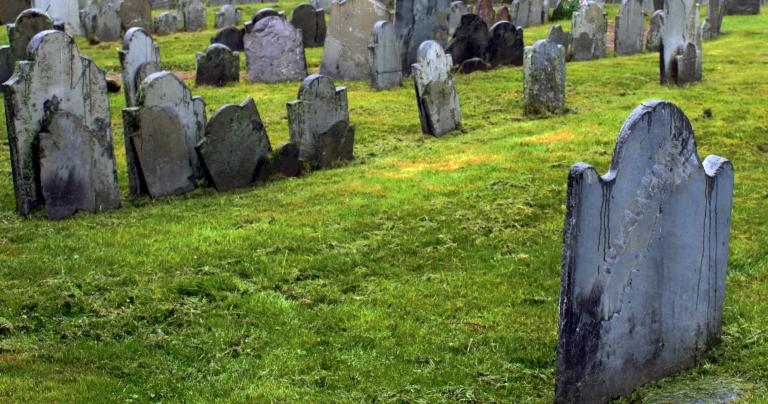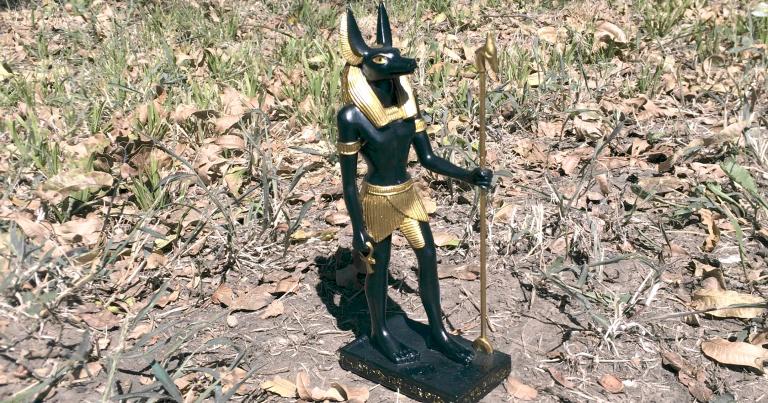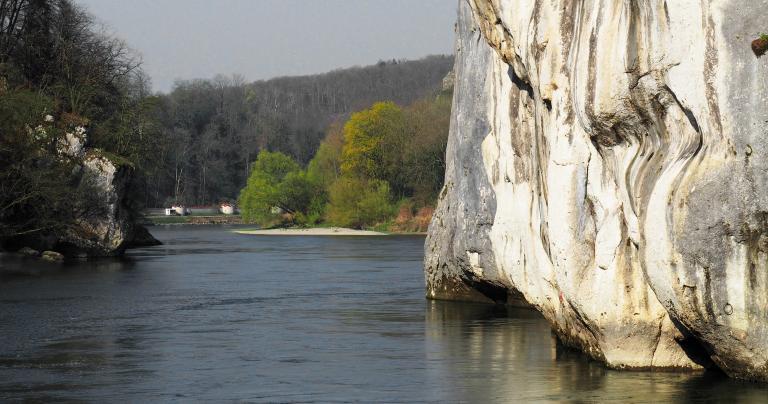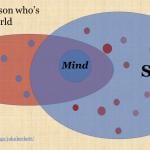I’ve seen several recent reports of people who contracted COVID-19 and were taken to the hospital. They died there, and since the hospital was closed to visitors they died alone. CNN Religion Editor Daniel Burke has a look at this titled Coronavirus preys on what terrifies us: dying alone.
The time to contemplate death is on a beautiful Spring afternoon when the sun shining and we feel like we’re going to live forever. Most of us don’t do that, though. We leave thinking about death until it’s staring us in the face and we can’t avoid it.
The past couple of weeks have made thinking about death pretty hard to ignore.
Most of us won’t die from COVID-19. Most of us will go on living long after this pandemic is over. But sooner or later every last one of us will die, and only a few will have the kind of peaceful idyllic death we like to imagine.
There’s a good chance you will die alone. The time to prepare for that is now.
There are many ways to die
I don’t fear death so much as I fear dying badly. My dream is to live actively in good health into my 90s, realize I’m dying with a couple months to put everything in order, then spend the last couple of days surrounded by family and friends until I quietly step into the Otherworld for the final time.
It might happen.
I also might get run over by the proverbial beer truck next week. Or I may die in any of a million ways, many of which do not allow for my loved ones to gather around to support me as I go.
As much as we rightly hope to have an easy crossing, prudence strongly suggests we prepare for an untimely one.
Some people choose to die alone
I’ve lost track of how many stories I’ve heard of people whose families gathered around them as they prepared to die, who hung on until the goodbyes were said, and who then waited until their caregivers stepped out for a meal or even to go to the bathroom before dying.
One or two of these would be a coincidence. I’ve heard enough I’m convinced some people want to spare their loved ones the experience of watching the moment of death.
Still, being alone at the moment of crossing is not the same as being alone in the days and hours that precede it. Nor is it the same as dying unprepared for what comes next.
Who will guide you into the Otherworld?
Some deities fill the role of psychopomp: one who guides the souls of the dead from this life into the next. The Egyptian Anubis is perhaps the best-known of these.
Different traditions and different deities do different things. Anubis doesn’t take you straight to the Land of the Dead. He guides you through the underworld until you come to the weighing of the heart. Do you know the answers to all the questions you’ll be asked? No? Best have your Book of the Dead – more properly known as The Book of Going Forth by Day – with you.
Must you have a guide? Not necessarily. In the first branch of the Welsh Mabinogi, Pwyll wanders into the Otherworld quite by accident. Our mainstream society tells of people who intuitively know to “go into the light.”
Yet we also know that those who die suddenly and unpleasantly are often confused and traumatized – they can use help making the transition to the next world.
I wonder who – if anyone – will come for me when I die? Cernunnos, who’s been with me pretty much my entire life? The Morrigan, who sometimes fills the role of psychopomp? Or perhaps my grandfather, or another ancestor of blood or of spirit?
Here’s what I know: as with all relationships, the time to talk to potential psychopomps is now, before you need their help. For one thing, building respectful reciprocal relationships is the right thing to do. But also, you’re more likely to get help from someone – or Someone – you know than from someone you call up out of the blue in an emergency.
Besides, as one of my friends likes to say, Gods of Death need love too.
Helping those who die move on
One of the most basic and essential things we can do for those who die – regardless of circumstances – is to pray for them.
As a child, I was taught that prayers for the dead were useless – “it’s too late to pray for them.” According to fundamentalist doctrine, the dead were immediately either in heaven or in hell and nothing could be done to change their fate.
This is blasphemy.
Pray that the dead will move on quickly and painlessly. Pray that their Gods and ancestors will help them make the journey, and that they will receive them into their presence. If this requires you, a Pagan, to pray to Jesus of Nazareth, so be it. There have been many times I’ve prayed “Jesus, this is one of Yours – please help them cross over.” Don’t ask the Morrigan to fetch your Baptist grandmother.
Conduct good religious funeral services. Right now most funerals are banned, but you and your friends and family can still say the necessary prayers and perform rituals to let the recently deceased know that while they will be missed, they will be remembered and their loved ones will be cared for.
Some cultures and traditions have specific requirements. Find a way to fulfill them, one way or another.
Building a world where good deaths are common
There will always be people who die alone in tragic ways: car wrecks, outdoor accidents, and such. And while the Coronavirus isolations won’t continue forever, there’s always the chance of another pandemic that will increase the numbers of people who are in isolation when they die.
But as our society has become more and more isolated and families have become more and more dispersed – a trend that started a hundred years ago with the automobile and accelerated with the post-WWII move to suburban living – more and more people find themselves living and dying alone.
Here’s a pre-Coronavirus piece from Quartz titled More people are dying alone—and the global economy isn’t prepared for it. The title is misleading. It’s not about the economics of dying alone – it’s about the trends that have gotten us to this point, and the lack of long-term commitments that exacerbate it.
We need a society where everyone is part of a family who will care for them in their last days. That means we need a society where people can care for their loved ones in their last days without being tied to a job or jobs that won’t let them go. It means we need communities that can spread the caregiving work around multiple people and not dump it all on one.
If you wait for our wider society to provide this, you’ll still be waiting when you die.
Instead, start now, building and strengthening your family of blood and family of choice. Who can you call at 3:00 AM and know they’ll listen? Who can call you at 3:00 AM and your first response will be “how can I help?” instead of “do you know what time it is?”
These are the people who will make sure you don’t die alone.
These relationships are hard to build.
The time to start building them is now.


















